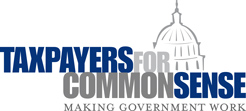|
October 30, 2013 Dear Chairwoman Stabenow, Ranking Member Cochran, Chairman Lucas, and Ranking Member Peterson: As you lead the formal conference in pursuit of a final farm bill, Taxpayers for Common Sense urges you to take this opportunity to reform Washington’s role in agriculture in a way that reflects the fiscal realities facing both taxpayers and the agricultural sector. Taxpayers are currently responsible for $17 trillion in debt, face large annual deficits, and have major challenges in financing federal commitments to health care, Social Security, and infrastructure on the horizon. Over the last decade the agricultural sector has experienced record profits, significant capital accumulation, and increased efficiencies allowing it to prosper during both the Great Recession and the record 2011 drought. The time has come for U.S. agricultural policies to become more cost-effective, transparent, accountable to taxpayers, and reflective of today’s modern production practices. Neither the Federal Agriculture Reform and Risk Management Act of 2013 (H.R. 2642) nor the Agriculture Reform, Food, and Jobs Act of 2013 (S. 954) contain the necessary steps to truly reform Washington’s role in agriculture. There are, however, a number of elements that if put together, will be a significant step forward. Taxpayers for Common Sense urges you to:
Recent debates and actions around the partial government shutdown and debt ceiling have laid bare the consequences of business-as-usual Washington. Taxpayers can afford nothing less than a final farm bill that is truly focused on the best interests of the country, rather than one designed to address parochial concerns for narrow constituencies. By keeping in a final package the elements mentioned above, taxpayers can at least start taking steps at true reform. If conferees are unwilling to make the tough choices to craft a farm bill that is more cost-effective, transparent, accountable to taxpayers, and reflective of today’s modern production practices, then all pieces of legislation should be scrapped and the committees head back to the drawing board. For more information contact Joshua Sewell, josh[at]taxpayer.net, 202-546-8500 x116.
Sincerely, Taxpayers for Common Sense |












Get Social